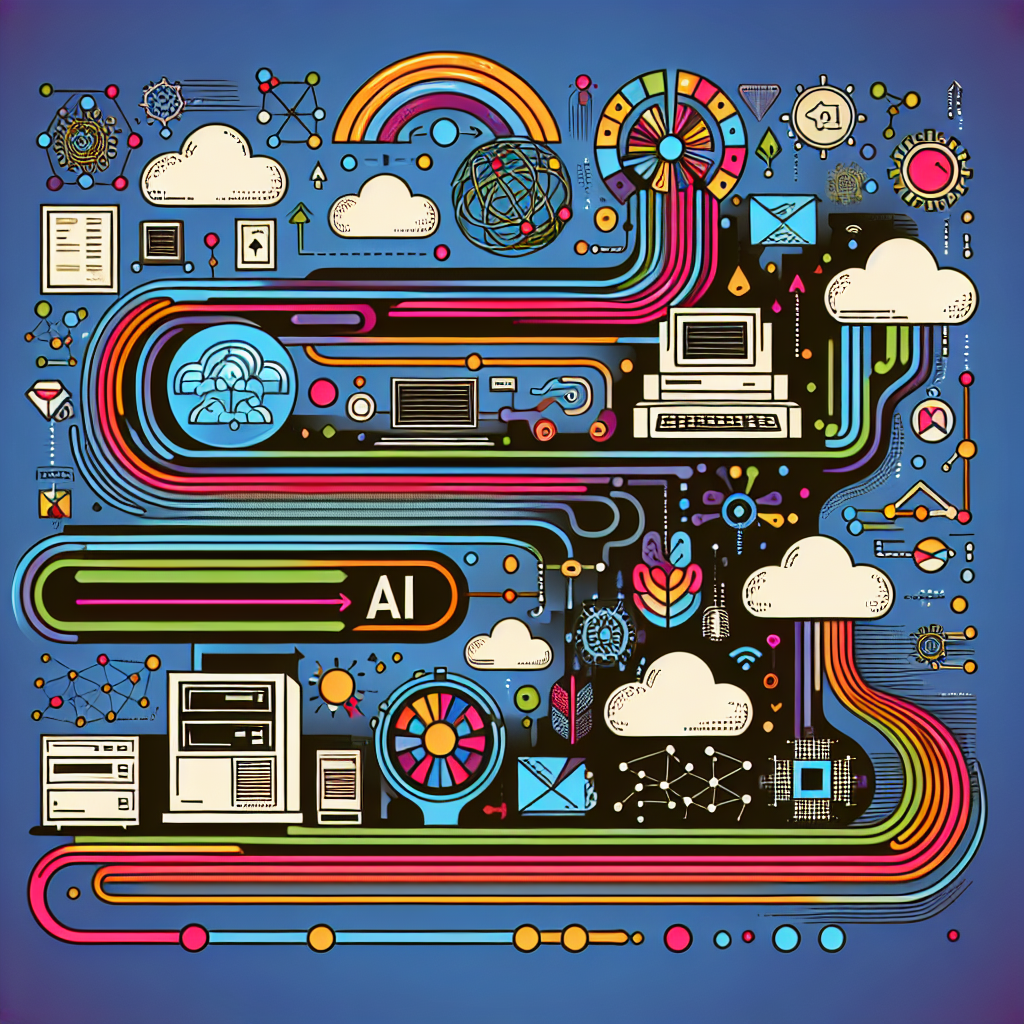The Evolution of AI in Cloud Computing Architectures and Technologies
Cloud computing has revolutionized the way businesses and individuals store, process, and access data. The ability to access computing resources remotely has enabled organizations to scale their operations rapidly and efficiently. With the integration of artificial intelligence (AI) into cloud computing architectures, the possibilities for innovation and automation are endless. In this article, we will explore the evolution of AI in cloud computing architectures and technologies, and discuss its impact on various industries.
Evolution of AI in Cloud Computing
The integration of AI in cloud computing has been a game-changer for businesses looking to leverage data and automation to drive growth and efficiency. AI algorithms are designed to learn from data and make decisions based on patterns and trends, enabling organizations to automate repetitive tasks and make data-driven decisions in real-time.
In the early days of cloud computing, AI was primarily used for predictive analytics and data mining. As cloud computing technology evolved, AI capabilities became more sophisticated, enabling organizations to utilize machine learning algorithms for a wide range of applications, such as natural language processing, image recognition, and autonomous decision-making.
Today, AI in cloud computing is being used to power a wide range of applications, from virtual assistants and chatbots to autonomous vehicles and smart cities. Cloud service providers are investing heavily in AI research and development to create powerful AI capabilities that can be easily integrated into cloud computing architectures.
AI in Cloud Computing Architectures
AI in cloud computing architectures can be divided into three main categories: AI as a Service (AIaaS), AI Platforms, and AI Tools and Frameworks.
AI as a Service (AIaaS) refers to cloud-based AI services that can be easily integrated into existing applications. These services include pre-trained machine learning models, natural language processing APIs, and computer vision APIs. AIaaS allows organizations to leverage AI capabilities without having to invest in expensive infrastructure or hire specialized AI talent.
AI Platforms are cloud-based platforms that provide tools and resources for building, training, and deploying AI models. These platforms typically include data storage, data processing, model training, and model deployment capabilities. AI platforms make it easy for organizations to build and deploy AI applications in the cloud, without having to manage the underlying infrastructure.
AI Tools and Frameworks are software libraries and frameworks that enable developers to build custom AI applications. These tools include popular machine learning frameworks such as TensorFlow, PyTorch, and scikit-learn, as well as AI development tools such as Jupyter Notebooks and Google Colab. AI tools and frameworks make it easy for developers to experiment with AI algorithms and build custom AI applications in the cloud.
Impact of AI in Cloud Computing
The integration of AI in cloud computing architectures has had a profound impact on various industries, including healthcare, finance, retail, and manufacturing.
In healthcare, AI-powered cloud computing applications are being used to analyze medical images, diagnose diseases, and personalize treatment plans. AI algorithms can analyze large datasets of medical images and patient records to identify patterns and trends that human doctors may miss. This enables healthcare providers to deliver more accurate diagnoses and personalized treatment plans, leading to better patient outcomes.
In finance, AI-powered cloud computing applications are being used to detect fraud, optimize trading strategies, and automate customer service. AI algorithms can analyze large volumes of financial data in real-time to detect anomalies and suspicious patterns that may indicate fraudulent activity. This helps financial institutions prevent fraud and protect their customers’ assets.
In retail, AI-powered cloud computing applications are being used to personalize customer recommendations, optimize supply chain operations, and improve customer service. AI algorithms can analyze customer data and shopping behavior to recommend products and promotions that are tailored to each individual customer. This helps retailers increase sales and customer satisfaction while reducing costs.
In manufacturing, AI-powered cloud computing applications are being used to optimize production processes, predict equipment failures, and improve quality control. AI algorithms can analyze sensor data from manufacturing equipment to identify patterns and trends that may indicate potential issues or failures. This enables manufacturers to proactively address maintenance issues and improve product quality.
FAQs
Q: What are the benefits of integrating AI into cloud computing architectures?
A: Integrating AI into cloud computing architectures enables organizations to automate repetitive tasks, make data-driven decisions in real-time, and leverage AI capabilities without having to invest in expensive infrastructure or hire specialized AI talent.
Q: How can organizations leverage AI as a Service (AIaaS) in the cloud?
A: Organizations can leverage AIaaS to access pre-trained machine learning models, natural language processing APIs, and computer vision APIs that can be easily integrated into existing applications. This allows organizations to quickly deploy AI capabilities without having to build and train their own models.
Q: What are some popular AI platforms for building and deploying AI applications in the cloud?
A: Some popular AI platforms for building and deploying AI applications in the cloud include Google Cloud AI Platform, Amazon SageMaker, and Microsoft Azure Machine Learning. These platforms provide tools and resources for building, training, and deploying AI models in the cloud.
Q: How can developers build custom AI applications using AI tools and frameworks in the cloud?
A: Developers can use popular machine learning frameworks such as TensorFlow, PyTorch, and scikit-learn, as well as AI development tools such as Jupyter Notebooks and Google Colab, to build custom AI applications in the cloud. These tools make it easy for developers to experiment with AI algorithms and build custom AI applications.
In conclusion, the integration of AI in cloud computing architectures has transformed the way organizations leverage data and automation to drive growth and efficiency. AI-powered cloud computing applications are being used in various industries to analyze data, automate tasks, and make data-driven decisions in real-time. As AI technology continues to evolve, the possibilities for innovation and automation are endless. Organizations that embrace AI in cloud computing will be well-positioned to compete in the digital economy and drive value for their customers.

